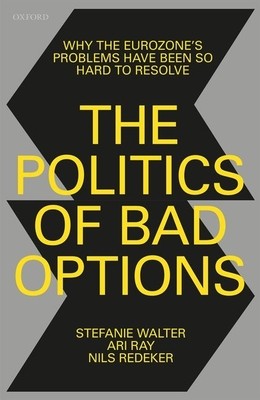
- We will send in 10–14 business days.
- Author: Stefanie Walter
- Publisher: Oxford University Press, USA
- ISBN-10: 0198857012
- ISBN-13: 9780198857013
- Format: 16.3 x 24.1 x 3.1 cm, hardcover
- Language: English
- SAVE -10% with code: EXTRA
Reviews
Description
This is an open access title available under the terms of a CC BY-NC-ND 4.0 International licence. It is free to read at Oxford Academic and offered as a free PDF download from OUP and selected open access locations. l
Why was the Eurozone crisis so difficult to resolve? Why was it resolved in a manner in which some countries bore a much larger share of the pain than other countries? Why did no country leave the Eurozone rather than implement unprecedented austerity? Who supported and opposed the different policy options in the crisis domestically, and how did the distributive struggles among these groups shape crisis politics?
of policy options, including the ones not chosen, and a unified framework that examines crisis politics not just in deficit-debtor, but also in surplus-creditor countries.
EXTRA 10 % discount with code: EXTRA
The promotion ends in 20d.10:52:01
The discount code is valid when purchasing from 10 €. Discounts do not stack.
- Author: Stefanie Walter
- Publisher: Oxford University Press, USA
- ISBN-10: 0198857012
- ISBN-13: 9780198857013
- Format: 16.3 x 24.1 x 3.1 cm, hardcover
- Language: English English
This is an open access title available under the terms of a CC BY-NC-ND 4.0 International licence. It is free to read at Oxford Academic and offered as a free PDF download from OUP and selected open access locations. l
Why was the Eurozone crisis so difficult to resolve? Why was it resolved in a manner in which some countries bore a much larger share of the pain than other countries? Why did no country leave the Eurozone rather than implement unprecedented austerity? Who supported and opposed the different policy options in the crisis domestically, and how did the distributive struggles among these groups shape crisis politics?
of policy options, including the ones not chosen, and a unified framework that examines crisis politics not just in deficit-debtor, but also in surplus-creditor countries.


Reviews